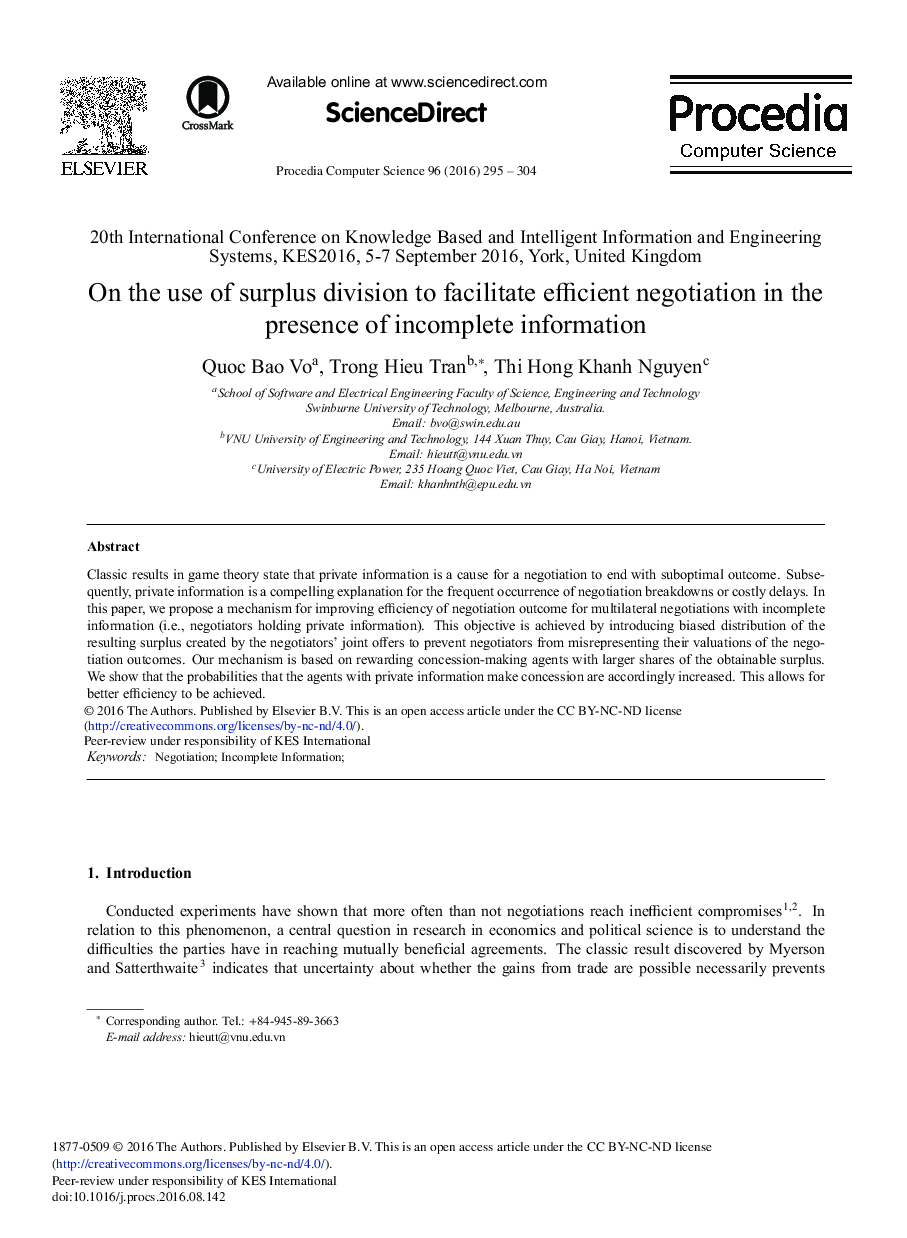| Article ID | Journal | Published Year | Pages | File Type |
|---|---|---|---|---|
| 4961829 | Procedia Computer Science | 2016 | 10 Pages |
Classic results in game theory state that private information is a cause for a negotiation to end with suboptimal outcome. Subse- quently, private information is a compelling explanation for the frequent occurrence of negotiation breakdowns or costly delays. In this paper, we propose a mechanism for improving efficiency of negotiation outcome for multilateral negotiations with incomplete information (i.e., negotiators holding private information). This objective is achieved by introducing biased distribution of the resulting surplus created by the negotiators' joint offers to prevent negotiators from misrepresenting their valuations of the negotiation outcomes. Our mechanism is based on rewarding concession-making agents with larger shares of the obtainable surplus.We show that the probabilities that the agents with private information make concession are accordingly increased. This allows for better efficiency to be achieved.
